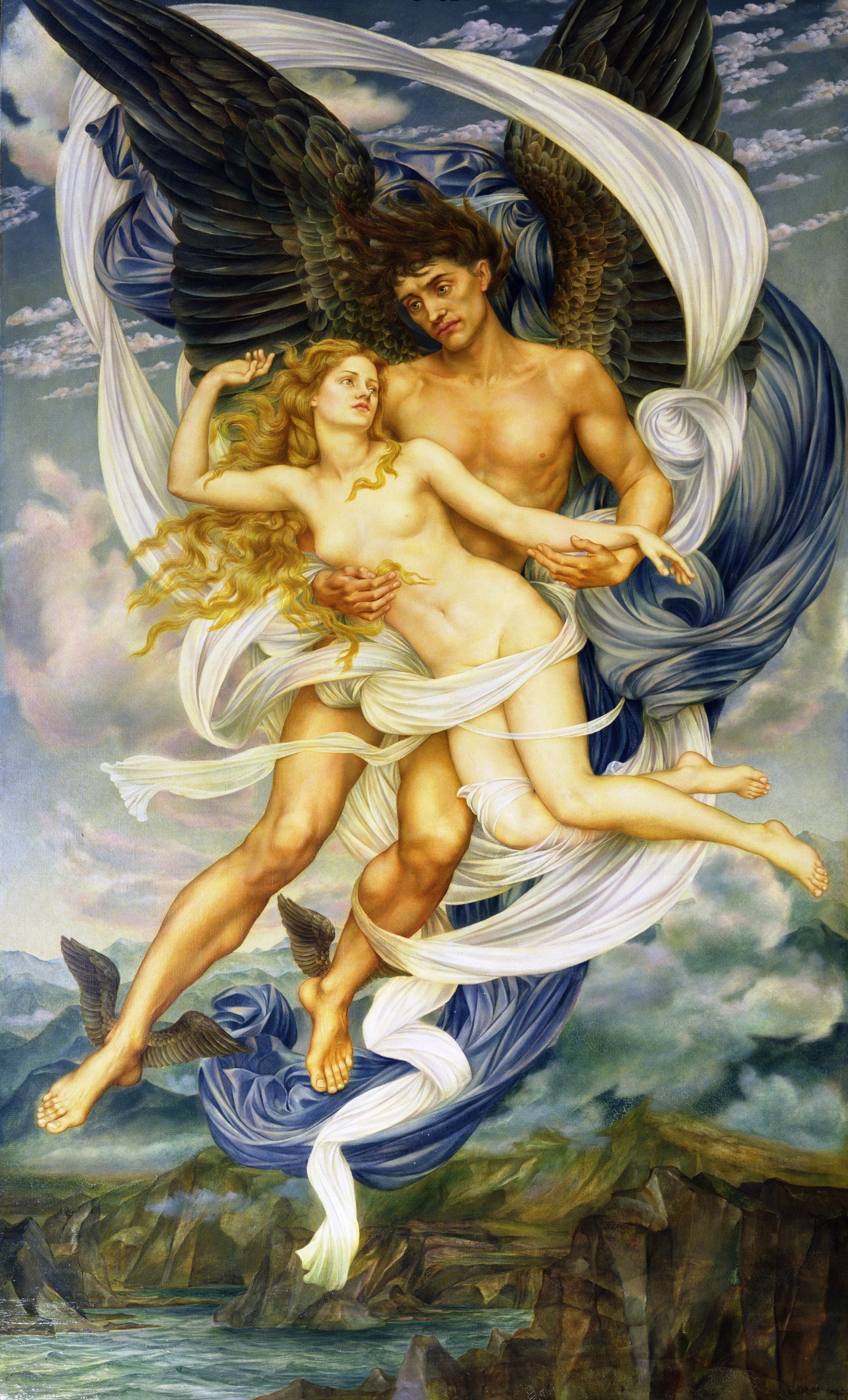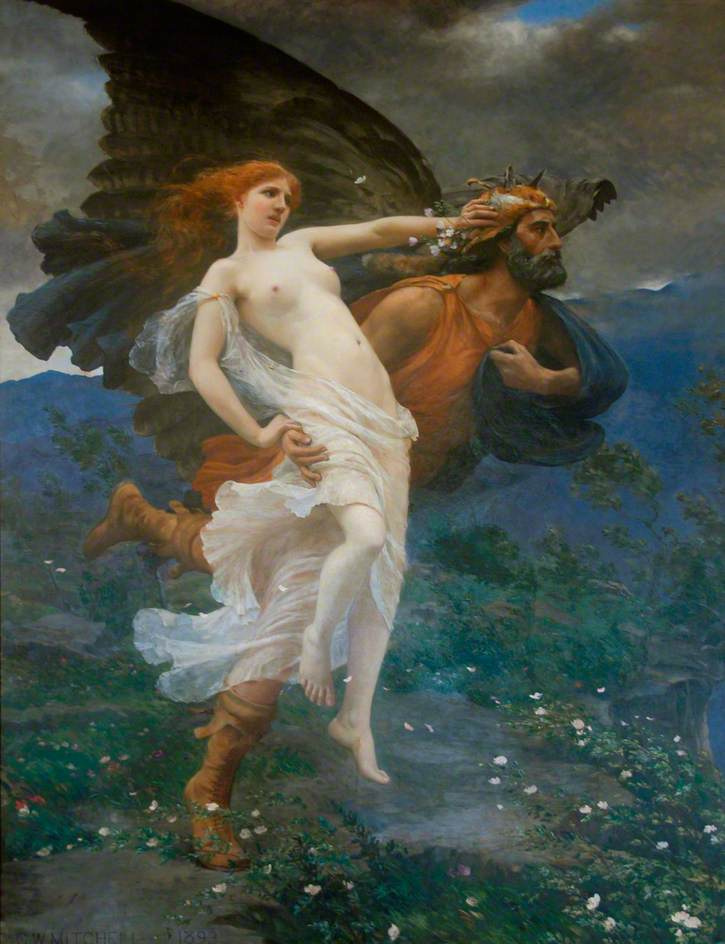ORITHYIA IN GREEK MYTHOLOGY
Orithyia in Greek mythology was a mortal princess who ultimately became the immortal wife of the Greek god Boreas; although to make her his wife, Boreas would abduct Orithyia.
Orithyia Princess of Athens
Orithyia was born in Athens, and was the daughter of King Erechtheus and Queen Praxithea.
Amongst the many siblings of Orithyia were her sisters Procris, Cerusa, Chthonia and Protogeneia, and the brothers of Orithyia may have included Cecrops, Metion, Orneus and Pandorus
Amongst the many siblings of Orithyia were her sisters Procris, Cerusa, Chthonia and Protogeneia, and the brothers of Orithyia may have included Cecrops, Metion, Orneus and Pandorus
Boreas Suitor of Orithyia
|
Orithyia was considered to be one of the most beautiful princesses of the age, and this beauty saw her catch the eye of Boreas, the Greek god of the North Wind.
Boreas was said to have first attempted to seduce Orithyia, even going so far as to approach King Erechtheus as to ask his permission to marry his daughter. The words of Boreas did not convince Orithyia though, and as anger overtook the god, Boreas decided to abduct Orithyia instead. |
|
The Abduction of Orithyia
|
The opportunity to take Orithyia occurred when the daughter of King Erechtheus strayed outside the city walls of Athens, for Boreas came across Orithyia whilst she was dancing along the bank of the River Ilissos.
Some say that Orithyia was first taken to Mount Pentelicus, north-east of Athens, whilst others tell that Boreas simply flew with Orithyia straight to the Sarpedonian Rock near the Aegean coastline of Thrace. Upon the Sarpedonian Rock, Boreas transformed himself into a dark cloud, and enveloped Orithyia, in order that he could have sex with her. Orithyia would subsequently become the immortal wife of Boreas, living with her husband in his palace upon Mount Haemus in Thrace. Orithyia was subsequently named as the Greek goddess of the cold mountain winds. |
Nonnus of Panopolis would claim that Boreas would present Erechtheus with two immortal horses, Xanthos and Podarces, sired by the god, as recompense for the loss of the king’s daughter.
Children of Orithyia
Orithyia would become mother to four children by Boreas, two daughters and two sons.
The two daughters of Orithyia were Cleopatra, who would become the first wife of the Thracian king Phineus, whilst the second daughter was Chione, a minor goddess of Snow.
The sons of Orithyia were Zetes and Calais, brother collectively known as the Boreads, who would become famous for their role as Argonauts.
The two daughters of Orithyia were Cleopatra, who would become the first wife of the Thracian king Phineus, whilst the second daughter was Chione, a minor goddess of Snow.
The sons of Orithyia were Zetes and Calais, brother collectively known as the Boreads, who would become famous for their role as Argonauts.
|
|

